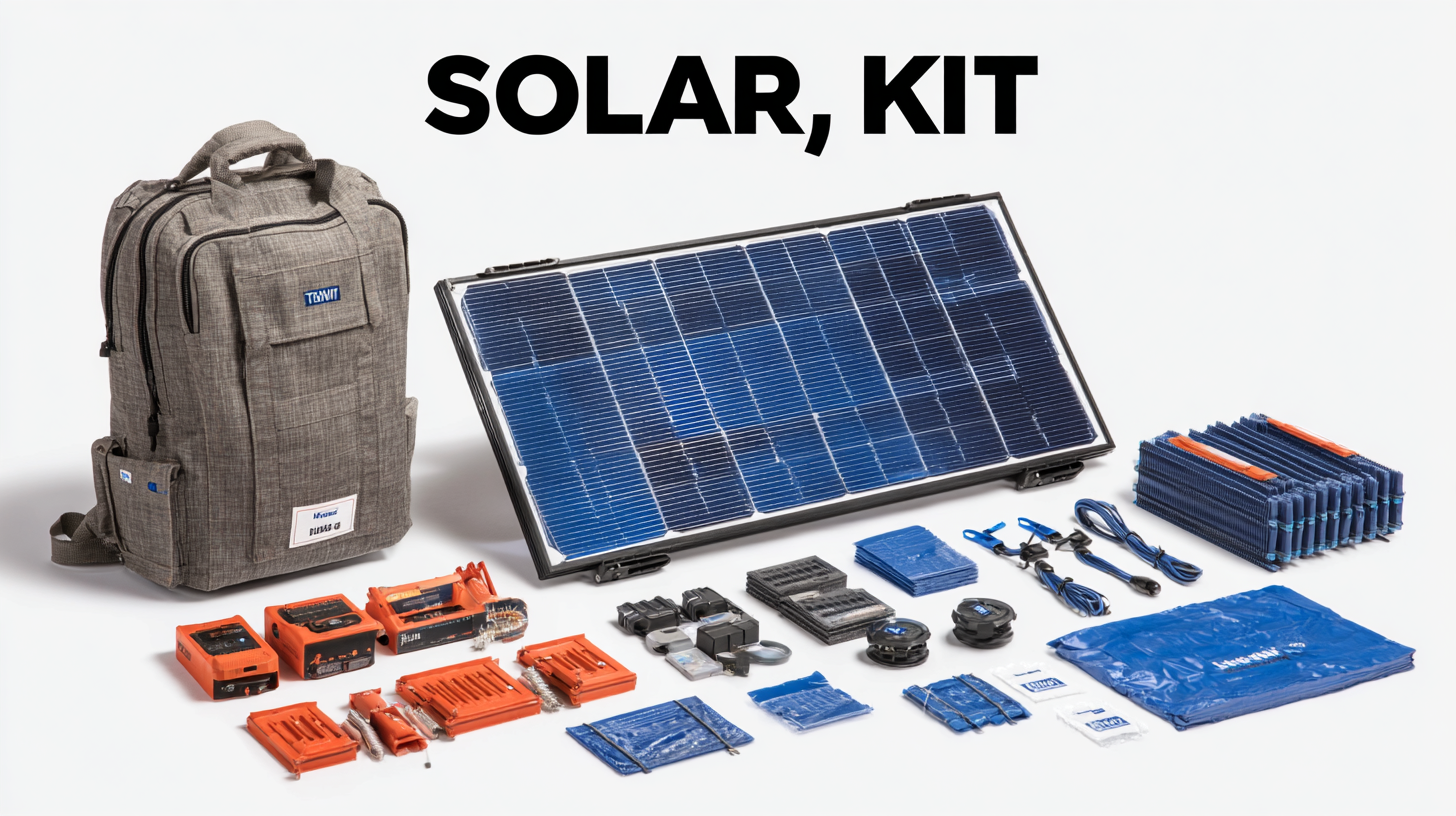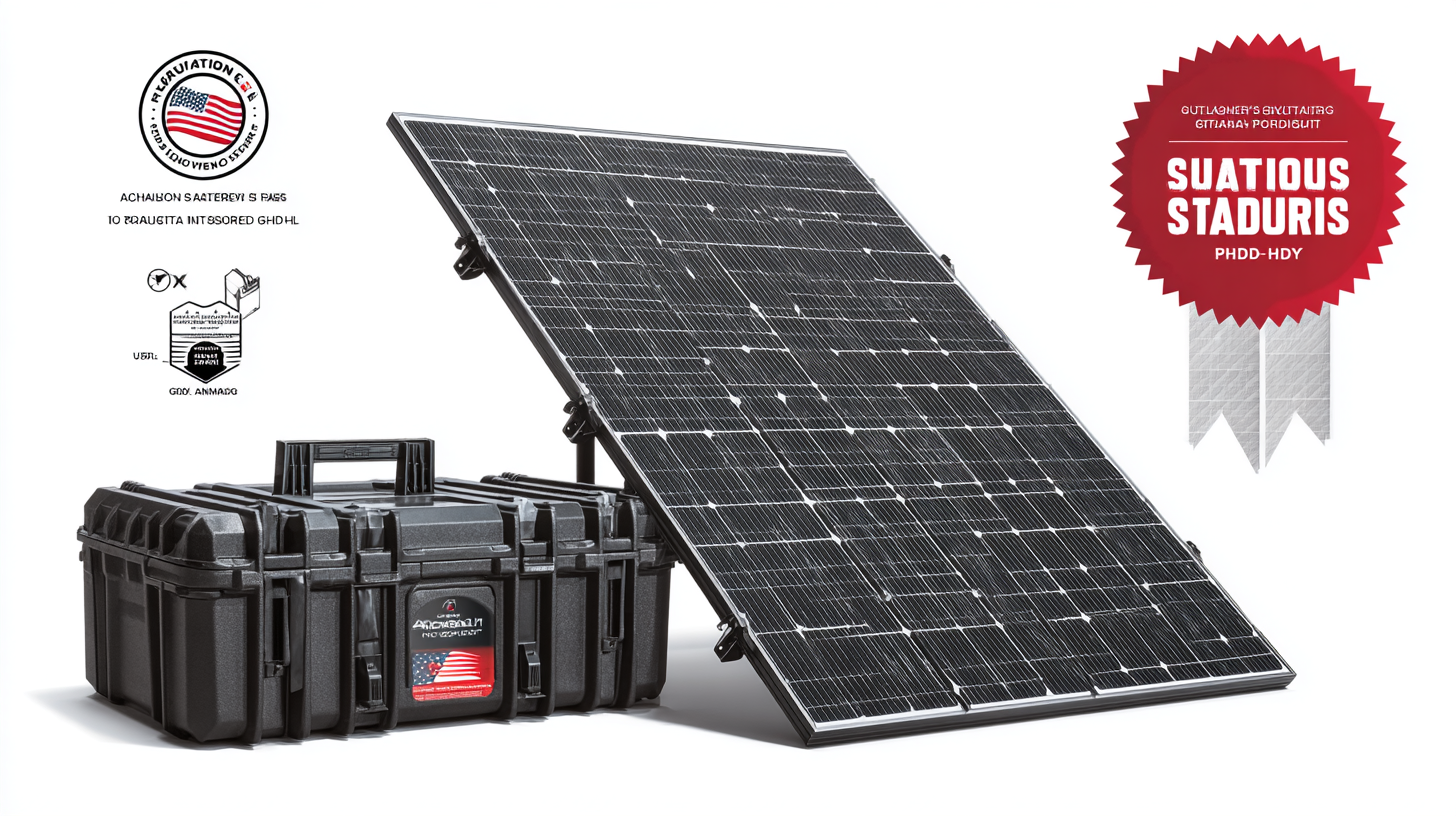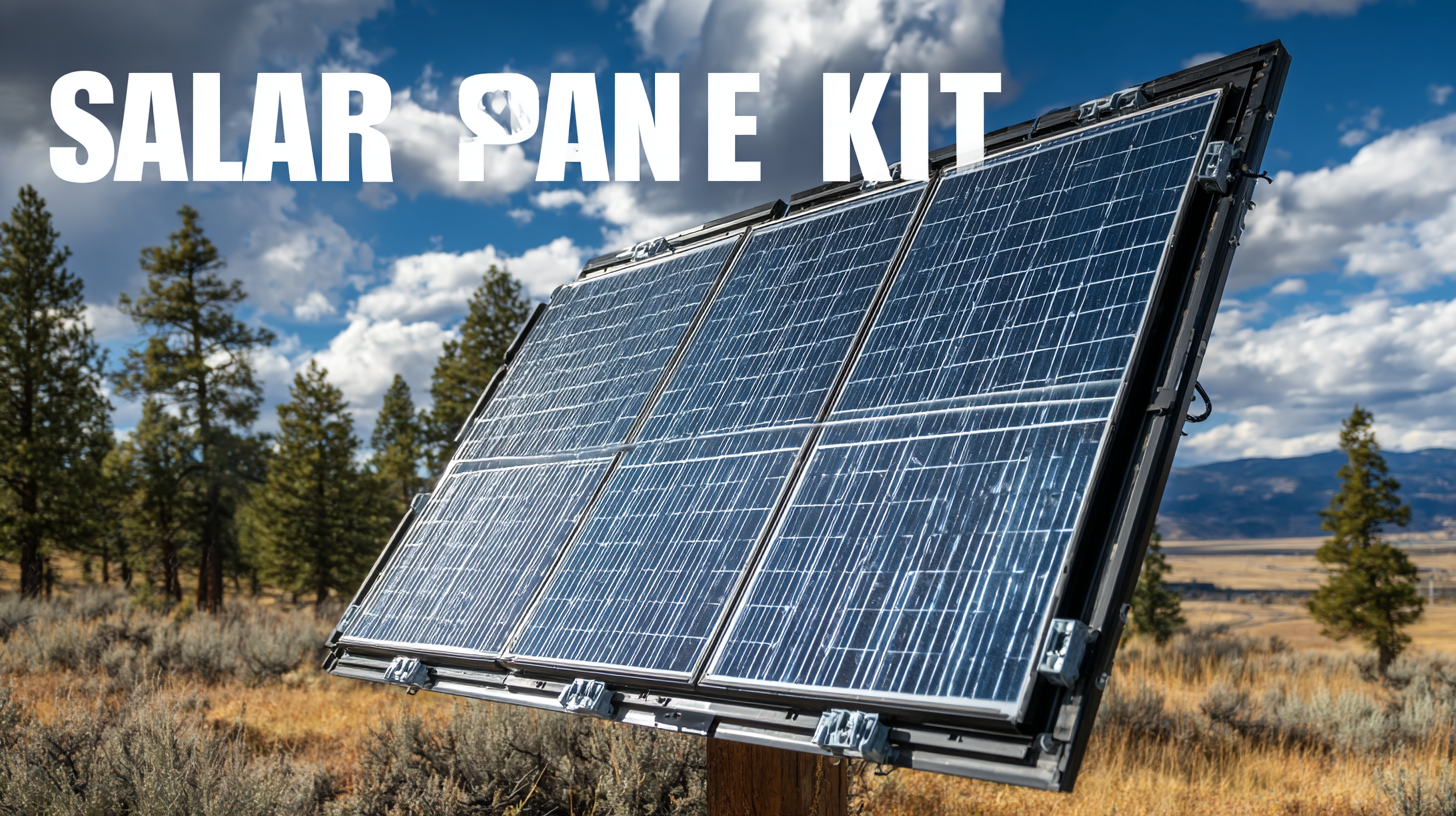
Achieving Industry Standards for Your Best Solar Panel Kit Purchasing Guide
When it comes to harnessing the power of the sun, investing in a quality Solar Panel Kit is a crucial step towards sustainability and energy independence. However, with the multitude of options available on the market, achieving industry standards can often feel overwhelming. This guide will delve into essential factors to consider when purchasing your Solar Panel Kit, including efficiency ratings, warranty terms, and installation requirements that can significantly influence your decision.

We will explore the top reasons why adhering to established industry standards not only ensures the longevity of your investment but also maximizes energy output and reliability. By equipping yourself with knowledge, you can make an informed choice that aligns with your energy goals and contributes positively to the environment.
Understanding Key Technical Specifications for Solar Panels
When selecting the best solar panel kit, understanding key technical specifications is crucial for making an informed purchase. Key factors include wattage, efficiency, durability, and warranty. Wattage refers to the power output of the solar panels; higher wattage typically indicates a more productive panel. Efficiency measures how effectively the panel converts sunlight into electricity, making it a critical consideration for homeowners and businesses looking to maximize their energy yield.
Another important aspect is the durability of the panels, which is influenced by their materials and construction. Look for panels made from high-quality materials that can withstand extreme weather conditions, such as hail and heavy winds. Additionally, the warranty offered by manufacturers can provide insights into the panel's longevity and reliability; extended warranties usually reflect higher confidence in the product's performance. By focusing on these technical specifications, consumers can navigate the solar panel market effectively, ensuring they choose a kit that meets their energy needs and performance expectations.

Evaluating Efficiency Ratings: What You Need to Know
When purchasing a solar panel kit, understanding efficiency ratings is crucial for making an informed decision. Efficiency ratings, typically expressed as a percentage, indicate how much of the sunlight a solar panel can convert into usable electricity. According to the National Renewable Energy Laboratory (NREL), the average efficiency of conventional silicon solar panels ranges from 15% to 20%. However, high-efficiency panels, such as those using monocrystalline technology, can achieve efficiencies of up to 22-23%, which can significantly impact your energy generation capabilities.

Additionally, the performance ratio (PR) also plays an essential role in evaluating solar panel effectiveness. A PR value measures the real-world output of a solar system compared to its theoretical output, factoring in losses due to inefficiencies like shading, temperature, and system maintenance. Reports from the Solar Energy Industries Association (SEIA) indicate that a performance ratio between 75% and 90% is considered effective for residential installations. By comprehensively understanding efficiency ratings and performance ratios, consumers can select solar panel kits that not only meet their energy needs but also maximize their investment in renewable energy.
Comparing Material Types: Monocrystalline vs. Polycrystalline Panels
When purchasing a solar panel kit, one of the most important decisions is choosing between monocrystalline and polycrystalline panels. Monocrystalline panels are made from single-crystal silicon, making them highly efficient at converting sunlight into energy, often achieving efficiencies above 20%. Their sleek black appearance and compact size allow for a greater power output within a limited space, making them an ideal choice for residential rooftops where aesthetics and space are concerns.
On the other hand, polycrystalline panels, created from multiple silicon crystals, tend to be more budget-friendly. Although they have a slightly lower efficiency rate, typically around 15-20%, the price difference can be significant, especially for larger installations. If you have ample roof space and a tighter budget, polycrystalline panels could be a smart choice, offering a balance between cost and output without compromising too much on performance.
**Tips:** When deciding, consider your energy needs and budget. It's wise to assess the space available for installation, as well as the local climate – monocrystalline panels perform better in small areas but may be slightly more affected by high temperatures compared to polycrystalline ones. Take the time to compare warranties and manufacturer reputations to ensure lasting quality and performance.
Assessing Durability and Warranty Standards in Solar Products
When investing in solar panel kits, assessing durability and warranty standards becomes crucial in ensuring long-term performance and reliability. The durability of solar products is commonly determined by their construction materials and design. High-quality solar panels typically employ robust materials that can withstand harsh weather conditions, such as hail, heavy rain, and extreme temperatures. Manufacturers often conduct rigorous testing to certify their panels against these elements, giving consumers confidence in their choice.
Equally important is the warranty offered by manufacturers, which serves as a safeguard for buyers. A comprehensive warranty typically covers both the panel's performance and its physical integrity over a specified period, often ranging from 10 to 25 years. This assurance not only reflects the manufacturer's confidence in their product but also provides peace of mind to consumers. When researching solar panel kits, individuals should compare warranty terms and conditions, looking for coverage that includes replacements for defective products and degradation in efficiency. By prioritizing durability and warranty standards, consumers can make informed decisions that will lead to optimal performance and satisfaction with their solar energy systems.
Important Safety Certifications for Solar Panel Kits
When choosing a solar panel kit, safety certifications are paramount. These certifications ensure that the products meet specific industry standards and are safe for consumer use. Look for kits that have globally recognized certifications such as UL (Underwriters Laboratories) or IEC (International Electrotechnical Commission). These certifications indicate that the solar panels have undergone rigorous testing for safety and performance, providing peace of mind for your investment.
Tip: Before purchasing, check the manufacturer's website for certification details. Don’t hesitate to request documentation if it isn’t readily available. This proactive approach can help you verify that you are buying a product that adheres to safety standards.
Additionally, consider the warranty that accompanies the solar panel kit. A longer warranty often signifies confidence from the manufacturer regarding the product’s durability and safety. Brands that prioritize safety certifications typically offer comprehensive warranties, reflecting their commitment to quality.
Tip: Compare warranties across different manufacturers to ensure you're selecting a kit that not only meets safety standards but also provides long-term support.
Safety Certifications for Solar Panel Kits
This chart illustrates the number of solar panel kits that have received important safety certifications. Certifications such as UL 1703, IEC 61215, and others are crucial for ensuring the quality and safety of solar panel systems. It highlights the significance of these standards in the solar industry.

